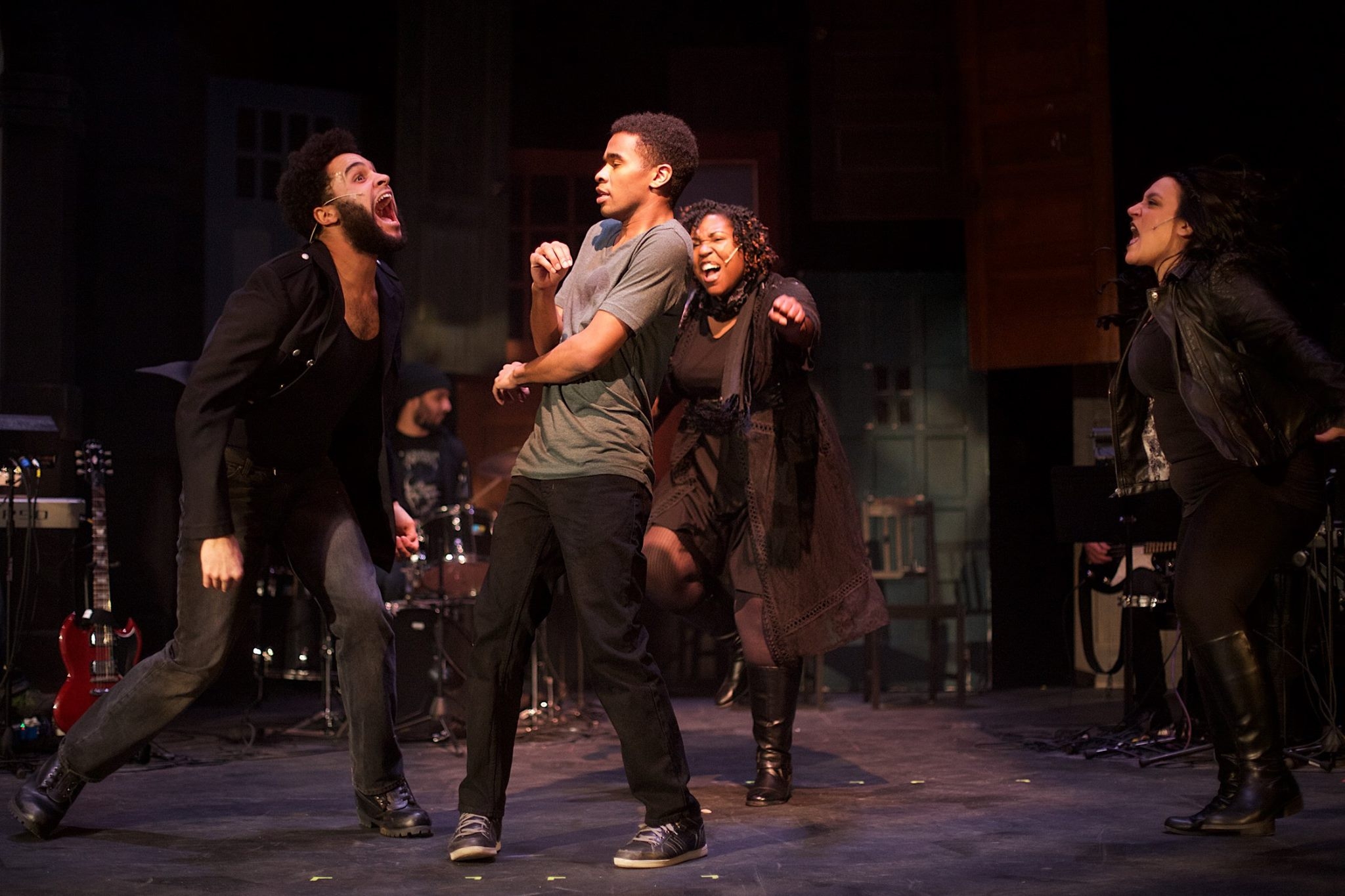“Passing Strange,” by Stew, is a beautifully raw story of a young African American boy searching for more out of life and the whirlwind of emotions he faces along the way.
This musical, directed at Actors’ Theatre by Fred Sebulske, is not like other musicals, as it’s not filled with big, flashy dance numbers and classic showtune-style music. Rather, the movement on stage is more symbolic than literal, displaying feelings of an experience more than the action itself.
The show begins with Stew, the narrator played by Nathaniel Beals, taking the stage. His strong voice captivates the audience from the beginning, and we soon realize that the main character, named in the cast as “Youth,” played by Titus Hankins, is a younger version of Stew, who is telling the story of his life. Stew is the original writer and composer of the show, and in earlier versions played the narrator himself.
Stew is growing up in Los Angeles, and feeling rebellious against the day-to-day life. He’s sick of going to church when he doesn’t believe, and feeling like he has to do certain things to make others happy. He feels that if he travels the world he can find “The Real” out of life, and leave behind his humdrum American life.
As Stew not only changes locations, but even transitions in his emotions, the music — directed by Duane Davis — is crucial to telling that part of the story: dark notes when he’s sad, sharp keys when he’s panicking, and when he and a group of friends try acid, the lights change colors and the music is quick and shrill. The audience is experiencing these emotions alongside Stew as he tumbles through them himself.
The set is minimal, with a symbolic arrangement of doors hanging along the back of the stage. One can assume this resembles the different journeys Stew goes on throughout the 2-hour musical, “when one door closes, another door opens.” The costumes are minimal as well, but the cast does well to change voices, accents, and facial expressions to clarify a change in character.
Throughout the story, Stew meets all kinds of people who both inspire him and force him to question himself. His mother, played by Marissa Baty, is important to him, but in the back of his mind throughout his existential journey — she is placed, at many points, on the side of the stage to symbolize that she’s on his mind, but not in the forefront.
Hankins’ use of strong facial expressions and body movement really clarified his character to the audience. He is expressive down to the smallest detail and uses his entire body to show what he is feeling. The other four cast members in the show play a handful of characters that change with each transition young Stew goes through. The music and dance is seamless, and the audience is not too distracted by elaborate dance scenes, but captivated by the emotions they represent. Choreographer Torrey Thomas shows, through contemporary dance, that he can feel the music and emotions of the script and create movement around that, putting the audience in the perfect position to not only enjoy the show, but feel strong empathy towards the characters.
This story is a classic one that anyone can relate to. While it’s about an African American boy’s experience, it’s relatable to anyone who has felt the longing to see more of the world and try new things. It’s a story of love, loss, change, art and — simply — humanity.
Passing Strange
Actors' Theater
Nov. 9-18
actorstheatregrandrapids.org





